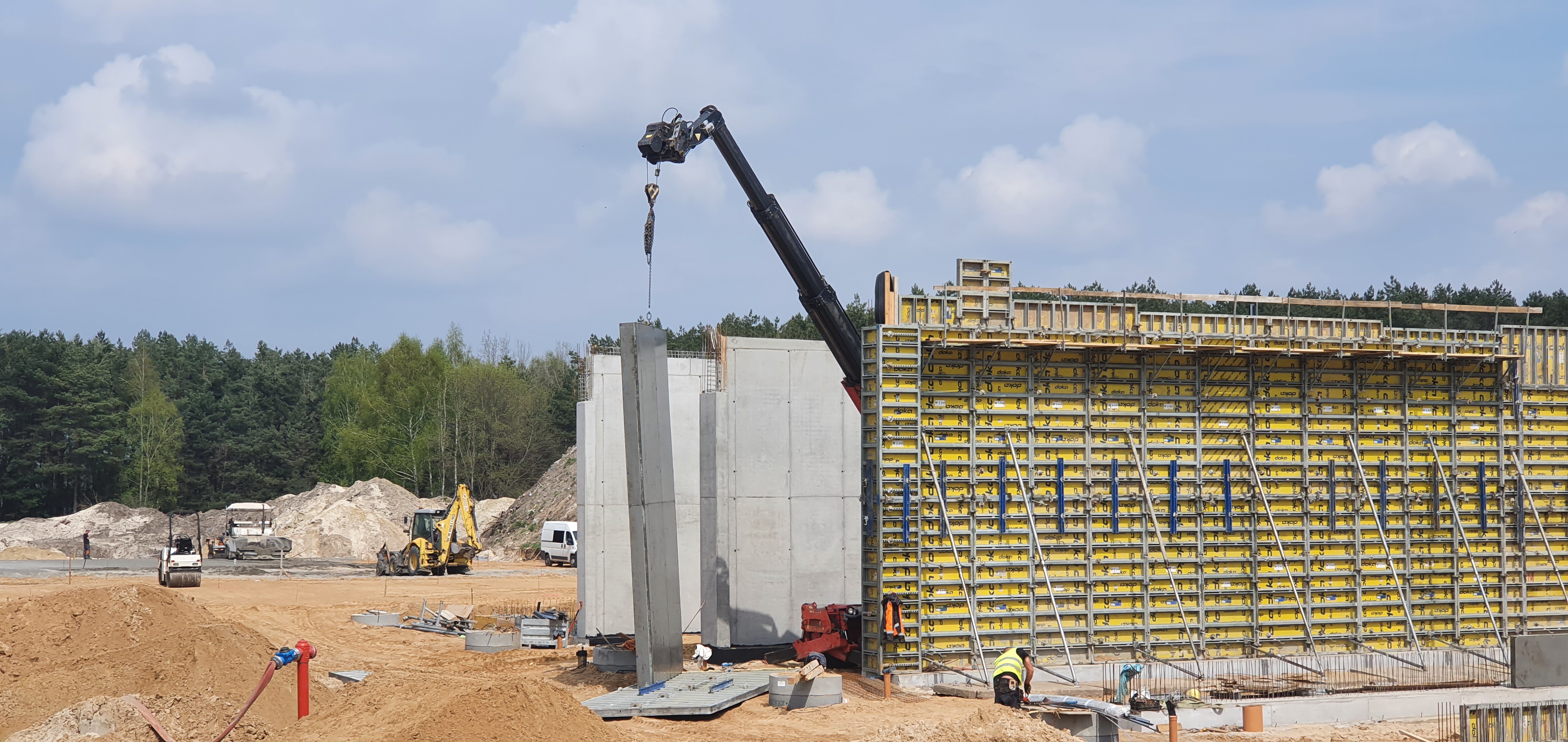
Technologies

Composting
NOVA-KOMP technology (composting/ aerobic stabilization of biodegradable waste) was developed on the basis of many years of experience of AK NOVA's employees in designing, implementing and commissioning biodegradable waste biostabilization installations

NOVA-KOMP - Polish composting system
Scientific supervision of the project was provided by Prof. Robert Sidelko, who developed theoretical models of the system's operation. The staff team analyzed the work of most of the composting systems in operation in Poland in terms of their effectiveness, functionality and economic efficiency. All advantages and disadvantages were taken into account, aiming to develop their own optimal solution eliminating the disadvantages of the existing ones. The result of the study work was the development of models, which in a short period of time were implemented in Rudna Wielka (Chemeko System) and Słajsin (Union of Municipalities R-XXI based in Nowogard). At the same time, in response to numerous inquiries from investors, several variants of the solutions used were developed to take into account specific locational or technological needs. The basic variant of the NOVA-KOMP system is based on the technologically and operationally optimal aeration of biofraction by injecting air into the bioreactor with simultaneous suction of post-process air further purified in the biofilter bed.

After the intensive stabilization process, the material should undergo a maturation process. During this process, it should undergo further processing, i.e. flipping, e.g. with a flipping machine or loader, and irrigation.
In all technological variants, it is assumed that the optimal time for holding waste in the intensive phase is a period of 3 weeks. Depending on the parameters of the material and the course of the process, it can be shortened or extended.
In one of the proposed solutions, the material is stacked in heaps, and the hall is a single bioreactor divided into sections corresponding to the individual heaps. In another arrangement, each bioreactor is a separate plant connected to a common system of control, leachate discharge, irrigation and air purification. The plant can also function as a back-drying facility for the combustible fraction of waste, known as RDF.
The individual modules are equipped with fan units controlled manually or automatically to ensure appropriate process parameters. In the bioreactors, in addition to the exhausts that carry away the post-process air, there are also devices for sprinkling, humidifying the material and at the same time performing a fire-fighting function.
Settings of the aeration and air collection system ensure the maintenance of a state of slight negative pressure in the chambers where the process of accelerated decomposition occurs, which eliminates uncontrolled emission of odors. The negative pressure also forces air movement in the bioreactors.
To ensure deodorization of waste gases, the post-process air is purified in a biofilter filled with a biological bed through biological oxidation and reduction processes that take place in it. The purification process can be augmented with a water scrubber system with acid and alkali dosing.

Proprietary technology
Our proprietary solution is to aerate the material through channels covered with concrete grates. The design of the grates, developed especially for NOVA-KOMP technology, provides a very large active surface in relation to the entire floor, while eliminating such unfavorable phenomena as clogging of vents, corrosion, mechanical damage (dents, cracks), and clogging of channels. The method of construction and foundation ensures trouble-free opening and cleaning of ducts. Past practice shows that with sufficient depth, it is sufficient to clean the ducts once a year. Our installations ensure trouble-free operation in all weather conditions (positive experience of both winter and summer operation). Ensuring trouble-free operation is possible thanks to the use of the highest quality equipment and materials, as well as performing the installation with the help of our own highly qualified employees.
For proper operation of the process and reduction of air pollutant emissions, as well as to meet the guidelines of the MBP Ordinance, a two-stage composting / aerobic stabilization process is planned:
- intensive process in concrete bioreactors for 2-4 weeks
- maturation process in the concrete yard for a period of 4-8 weeks
To improve functionality, we recommend the construction of additional space (additional pile or technological bioreactor) for the collection of waste. The total height of the bioreactors should not be lower than 5 meters, which ensures the free operation of equipment operating the composting plant.
To control the dynamics of the processes occurring in the material undergoing aerobic stabilization, it is envisaged to use lances with temperature and oxygen probes and organoleptic moisture test. The process is controlled by changing the operating parameters of the fans and, if necessary, irrigating the material.
AK NOVA, as an engineering company with its own design, technology and execution department, offers the implementation of the NOVA-KOMP composting plant in a turnkey system - from concept, through design, construction start-ups to obtaining all necessary permits and decisions. We carry out comprehensive investments also including the supply of specialized equipment, roads, yards, connections, etc.
Implementation by AK NOVA guarantees our customers fast and efficient service throughout the country, the possibility of free consultations with our technologists, designers or installers, and continuous warranty and post-warranty service.
AK NOVA, a company with an established position in the market of services for the waste sector, as the owner of NOVA-KOMP technology, guarantees that its actions are always guided by the pursuit of the best possible customer service at every stage of cooperation. We use domestic suppliers, manufacturers and service providers for our installations, and the proposed technology is the first truly Polish technology developed through cooperation with Polish scientists.
Recent realizations


Design, modernization and expansion of the existing sewage sludge composting plant at Świderska Street in Lukow
Interesting Offer?
